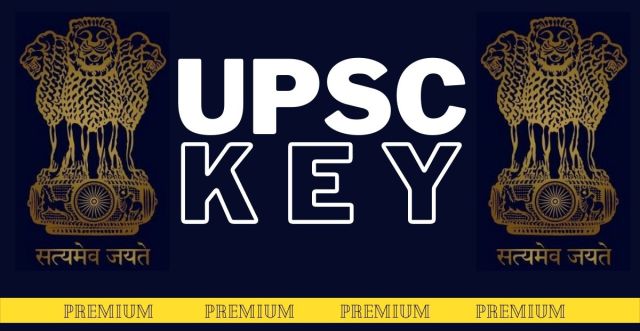
NIA court gives life term to Yasin Malik: his crimes meant to strike idea of India
Syllabus:
Preliminary Examination: Current events of national and international importance.
Mains Examination: General Studies III: Role of external state and non-state actors in creating challenges to internal security
Key Points to Ponder:
• Who is Yasin Malik?
• What was the case against Yasin Malik?
• What were the charges of terrorist funding against Malik?
• What Is Hawala?
• How Hawala Transaction works?
• There are certain advantages of Hawala Transaction but it has gained more notoriety than fame, why?
• What makes Hawala illegal?
• How Hawala transaction is regulated in India and What Is the Punishment for Hawala in India?
• How Hawala Transactions are used for terror funding?
• What is Unlawful Activities (Prevention) Act (UAPA)?
Other Important Articles Covering the same topic:
📍 Hawala
📍 Explained: The terror-funding case in which JKLF’s Yasin Malik has been convicted
Across class, subject, Covid hits school scores
Syllabus:
Preliminary Examination: Economic and Social Development-Sustainable Development, Poverty, Inclusion, Demographics, Social Sector Initiatives, etc.
Story continues below this ad
Mains Examination: General Studies II: Issues relating to development and management of Social Sector/Services relating to Health, Education, Human Resources.
Key Points to Ponder:
• National Achievement Survey (NAS) is a nationally representative large-scale survey of students’ learning undertaken by which ministry?
• Why is National Achievement Survey (NAS) conducted?
• Which organisation under Ministry of Education, Government of India conducts this Survey?
• National Achievement Survey (NAS) 2021-Know the key outcome of this survey
Story continues below this ad
• What does the National Achievement Survey (NAS) 2021 say about the impact of the COVID pandemic on education?
• What do you understand by Digital-Divide?
• What was the Challenges faced due to the digital divide among teachers across the country?
Other Important Articles Covering the same topic:
📍 The post-pandemic crisis in schooling and higher education portends a grim future for India’s students, especially the poor
THE CITY
DTC officers to take weekly bus trips to get more people on board
Syllabus:
Story continues below this ad
Preliminary Examination: Economic and Social Development-Sustainable Development, Poverty, Inclusion, Demographics, Social Sector Initiatives, etc.
Mains Examination: General Studies III: Infrastructure: Energy, Ports, Roads, Airports, Railways etc.
Key Points to Ponder:
• What is the Status of Urban Transport in India?
• Which are the major modes of Public Urban Transport in India?
• India’s transport sector is large and diverse, how much this sector contributes to the nation’s GDP?
Story continues below this ad
• What are the issues and challenges faced by Urban Transport in India?
• What are the Government of India’s Initiatives to address Urban Transport issues?
• What are the Various state government’s Initiatives to address Urban Transport issues?
Other Important Articles Covering the same topic:
📍 India Transportation
More than firecrackers, biomass burning made air poor after Diwali: IIT-Delhi study
Syllabus:
Story continues below this ad
Preliminary Examination: General issues on Environmental ecology, Bio-diversity and Climate Change
Main Examination: General Studies III: Conservation, environmental pollution and degradation, environmental impact assessment.
Key Points to Ponder:
• A study led by researchers from IIT-Delhi titled ‘Chemical Speciation and Source Apportionment of Ambient PM2.5 in New Delhi Before, During, and After the Diwali Fireworks’-Know the key Highlights of this report
• What are the other reasons for Air pollution in Delhi?
• Why Delhi pollution is always in News?
• Stubble Burning, Happy Seeder and Diwali Crackers-connect the dots
• Know the Geographical location of Delhi
Story continues below this ad
• Being landlocked makes Delhi’s air pollution worse-How far you agree with this?
• Know the Supreme Courts Judgments on Delhi Air Pollutions
• Know the National Green Tribunal and Various Decisions given by NGT like modification in National Clean Air Programme
• Air Quality Management in NCR Region-Role and Steps Taken so Far
• What is Graded Response Action Plan (GRAP)?
• What are the Steps taken By Central and Delhi Government to Curb Pollution like Car Rationing (Odd-Even Policy)
Story continues below this ad
• Know the best International Practices to Curb Air Pollution in Urban Areas
Other Important Articles Covering the same topic:
📍 Hardlook: Delhi holds its breath
📍 Explained: Why does air pollution rise in October every year?
THE EDITORIAL PAGE
Reform by persuasion
Syllabus:
Preliminary Examination: Economic and Social Development and Indian Polity and Governance
Mains Examination:
• General Studies II: Functions and responsibilities of the Union and the States, issues and challenges pertaining to the federal structure, devolution of powers and finances up to local levels and challenges therein
• General Studies III: Inclusive growth and issues arising from it
Key Points to Ponder:
• The Supreme Court’s recent decision on the recommendations of the GST Council are not binding will have significant implications in determining the nature of GST, How?
• What is the Goods and Services Tax (GST)?
• The Kelkar Task Force on the Fiscal Responsibility and Budget Management (FRBM) Act, 2003 and the Genesis of Goods and Services Tax (GST)
• Goods and Services Tax (GST) and 101st Amendment Act, 2016-Know in detail
• What are the different types of Goods and Services Tax (GST)?
• Know the differences between Central GST (CGST), State GST (SGST), Union territory GST (UTGST) and Integrated GST (IGST)
• How would a particular transaction of goods and services be taxed simultaneously under Central GST (CGST) and State GST (SGST)?
• What are the benefits of Goods and Services Tax (GST) in India?
• Goods and Services Tax (GST)-Issues and Challenges
• GST Council and Article 279A of the Constitution-Key Provisions
• GST Council and Members-Know in detail
• What is the role of GST Council?
• What is the nature of Federalism in India?
• Important features of Indian federalism-Know in detail
• The Constitution of India provides for a federal system of government, But the term ‘federation’ has nowhere been used in the Constitution-True or False?
• What Supreme Court of India said on Federalism in India in Union of India and Anr versus M/s Mohit Minerals Through Director case?
• What observations did the Supreme Court made on the GST Council and on country’s federal structure? (Hint: Recommendations of the Goods and Services Tax (GST) Council cannot be binding on the Centre and states and many more)
• “The relationship between two constituent units that are not autonomous but rely on each other for their functioning is not in practice always collaborative or cooperative”-Decode the quote
• Decode the quote- “Democracy and federalism are interdependent on each other for their survival such that federalism would only be stable in well-functioning democracies”.
• Competitive Federalism Cooperative Federalism and Fiscal Federalism are very much in news. What do you understand by these terms in Indian Scenario?
Other Important Articles Covering the same topic:
📍 Explained: The SC ruling that GST Council decisions are not binding on Centre or states
📍 The Paradox of ‘Centralised Federalism’: An Analysis of the Challenges to India’s Federal Design
EXPLAINED
Sugar export curbs, impact
Syllabus:
Preliminary Examination: Economic and Social Development
Mains Examination: General Studies III: Indian Economy and issues relating to planning, mobilization, of resources, growth, development and employment.
Key Points to Ponder:
• Why the Government of India decided to “restrict” the export of sugar, effective from June 1?
• What are the latest curbs?
• How much did India export Sugar during the last few seasons?
• Why the curbs, now?
• What can be the sugar output this season?
Other Important Articles Covering the same topic:
📍 Government must resist demands for banning exports. Real problem that requires addressing is yields
📍 SUGAR LOW
Get an e-paper subscription via our special offer – click here
For any queries and feedback, contact priya.shukla@indianexpress.com
The UPSC KEY Indian Express is now on Telegram. Click here to join our channel and stay updated with the latest Updates.


































